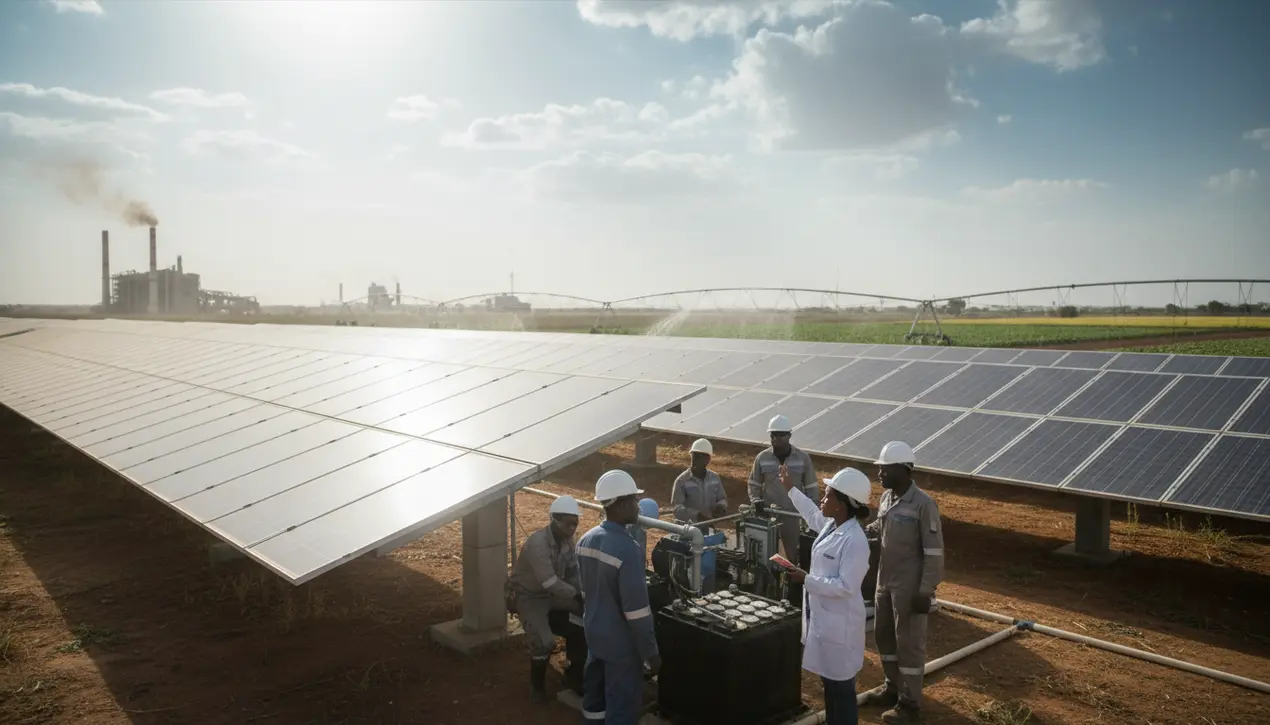
PoliticslegislationEnvironmental Laws
Africa's Green Industrialization Path Amid Global Shifts
RA
Rachel Adams
1 day ago7 min read1 comments
The tectonic plates of global geopolitics are shifting, and in the fissures that emerge, Africa finds a rare and pivotal opportunity. For decades, the continent's industrial ambitions were hemmed in by a rigid framework of international rules and conditionalities, often imposed by multilateral financial institutions and trade agreements that prioritized raw material extraction over localized, value-added manufacturing.This longstanding dynamic locked many African economies into a role as mere suppliers to the world's factories, a paradigm that has consistently hampered broad-based economic development and left nations acutely vulnerable to commodity price swings. However, the current era of fragmentation—marked by escalating US-China tensions, supply chain reconfigurations, and a general retreat from hyper-globalization—is paradoxically dismantling these very constraints.The old playbook is becoming obsolete, and African governments now possess unprecedented agency to craft bold, sovereign industrial policies. The critical task, and the monumental challenge, is to channel this nascent autonomy toward a green industrial revolution that is both economically transformative and ecologically imperative.This is not merely about building factories; it is about architecting resilient economies from the ground up. Imagine a future where the sun-drenched plains of the Sahel power not just local communities but entire industries through massive solar farms, where the Democratic Republic of Congo processes its own cobalt and lithium into battery components rather than exporting the raw ores, and where drought-resistant agriculture supported by smart irrigation becomes a cornerstone of food security and export revenue.This vision of green industrialization directly confronts the dual crises of underdevelopment and climate vulnerability. Africa, despite contributing minimally to historical greenhouse gas emissions, stands on the front lines of climate change, facing more frequent droughts, devastating cyclones, and unpredictable growing seasons.Building higher-value-added sectors around renewable energy, sustainable agriculture, and circular economy models is therefore a strategic imperative for climate adaptation. It strengthens national economies by creating skilled jobs, fostering technological innovation, and reducing import dependencies, while simultaneously building infrastructure and systems that can withstand environmental shocks.The path is fraught with obstacles, including the need for massive infrastructure investment, technological transfer on fair terms, and navigating the competing interests of global powers like the EU, US, and China, all vying for influence and critical minerals. Yet, the alternative—a return to the extractive status quo or a race to the bottom in dirty manufacturing—is a certain dead end. The moment demands courageous leadership and visionary policy that sees economic development and ecological stewardship not as conflicting goals, but as two sides of the same coin, forging a future where prosperity is both shared and sustainable.
#Africa
#green industrialization
#climate resilience
#development policy
#geopolitics
#featured
Stay Informed. Act Smarter.
Get weekly highlights, major headlines, and expert insights — then put your knowledge to work in our live prediction markets.
Related News
Comments
Loading comments...
© 2025 Outpoll Service LTD. All rights reserved.